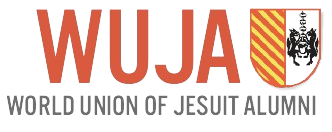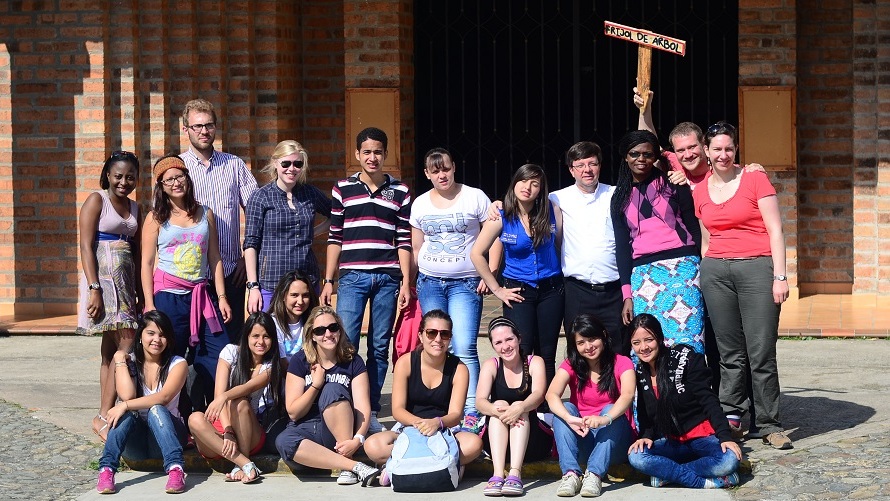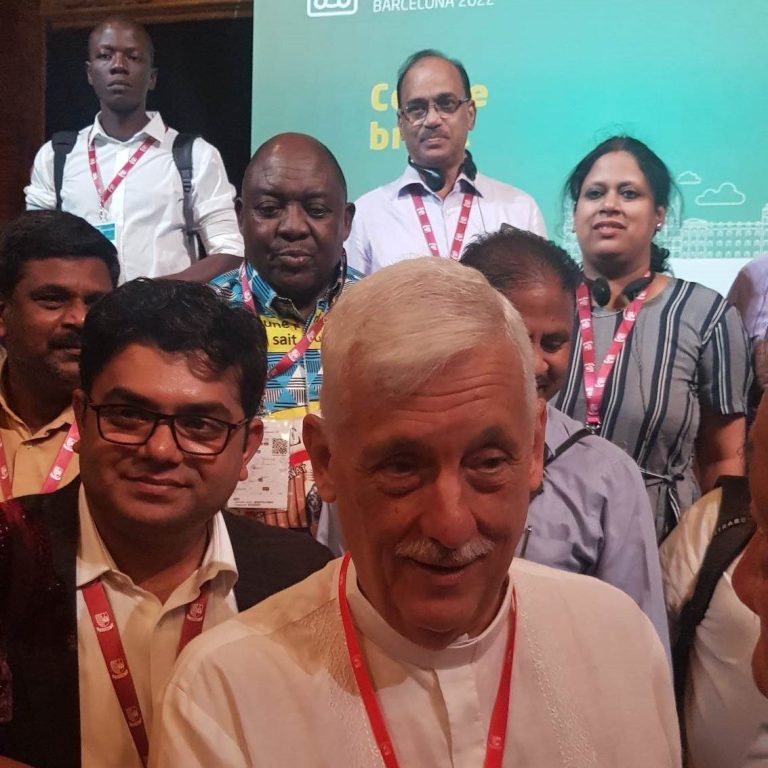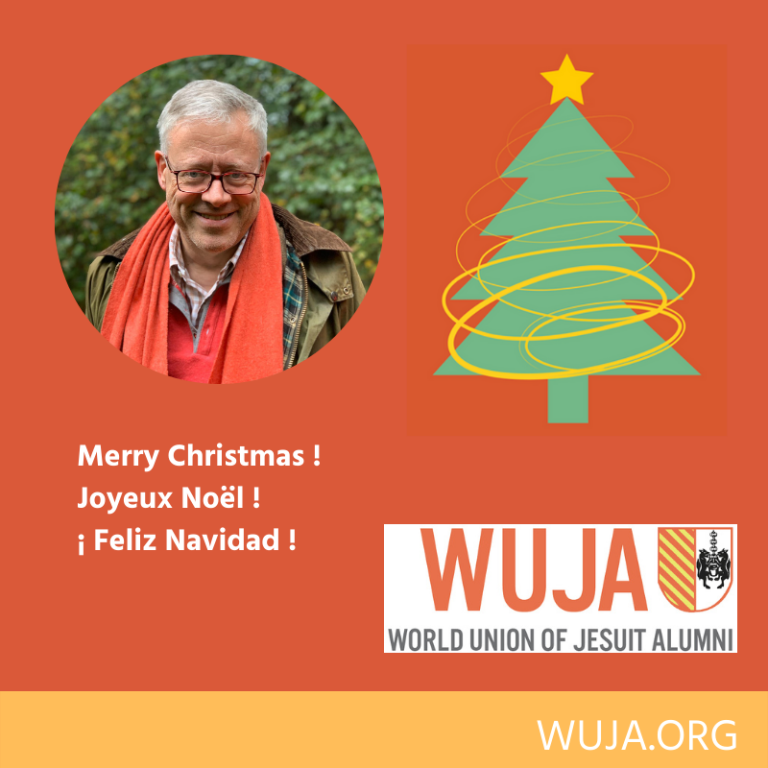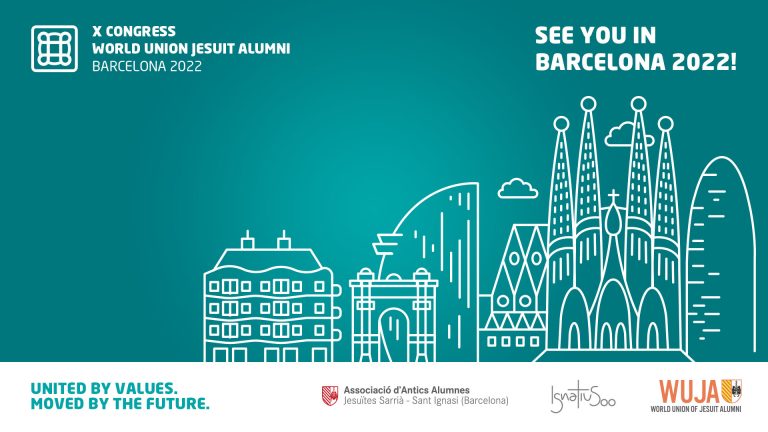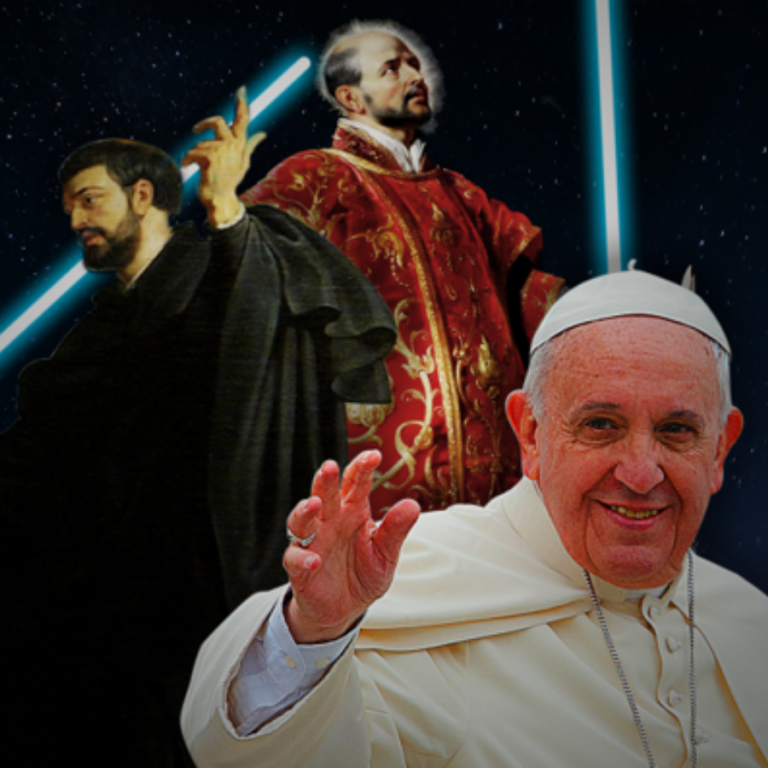Experiments Medellin – 2013
Account by Ellen Van Roost
Graduated from the Onze-Lieve-Vrouw College,
Antwerp, Belgium, in 2008
Thus far we have talked about what we did. The real question remains: what did I feel, think and learn?
What touched me the most from the beginning was the Columbian hospitality and warm welcome. It’s not the first time that I travel abroad to do volunteer work, but quite often I get homesick after arriving. I then want to home, because I don’t feel at home and want to go back. This has not been the case here in Colombia and in Caldas. Upon arrival, we were welcomed like we would be at home and were treated as ‘one of them’: with open arms and with lots of respect for our cultural differences- without treating us any different- our Colombian friends let us join in. One example that I can think of is when we went to visit the sick and elderly to bring them holy communion. In each home we would read the gospel of the day and at a given moment we were asked to take over and read the lecture…in Spanish, that is. The question remains whether they really understood our Spanish.
For me this visiting of the sick was one of the strongest experiences of the program. The inhabitants of Caldas not only opened there homes to 3 or 4 foreign visitors, whom they hadn’t expected. They were also happy and honored to meet people l so far away. This really moved me. They offered us coffee and biscuits and a few of them even shed a tear.
I am also amazed to see what a local initiative can do for a community. We visited the local organization called corpodil. And they told us that because of the local initiatives they are setting up, the community has improved a lot. Children have got a place to play, they teach girls the skills they need to become an esthetician, and many more initiatives that all give young people in this community hope for a better future. You should know that only 8 years ago young boys playing in the streets would be shot, now they are playing soccer together and play in safety. Isn’t this the future we want for ourselves and for the next generations.
For me these experiments have been a living example of ‘contemplation in action’, as St. Ignatius called it. Not only in interaction with the children and parishioners but also with our Colombian friends for Collegio San Ignacio that joined us, I felt God present throughout the many activities.
One by one these unique individuals from different parts of the world reminded me of the values and mantras we all learned in our Ignatian education. By living this intense experience I am reminded of what I want in life, what I am called to and how I want to serve God in my daily life.
This is crucial for young people, on the verge of very important life decisions. I remember in my high school in Antwerp, that in big letters at the top of our test paper there was the abbreviation ‘AMDG’, ad maiorem dei gloriam’. Well, this is exactly what the experiments call young alumni to do: It has given me the opportunity to discover values that will be important for me in making decisions, not only in my professional life but also and maybe most important, in my personal life. I was reminded once again that I am called for more, to not only think of personal gain in my professional life but also think of how I can help others grow, to always remember to serve the other the best way I possibly can and welcome them with an open, non-judgmental heart like all the people did that we worked with. Or maybe I should say: the people that worked with us. Because although we did missionary work, I can say for sure that they taught me more than that I can imagine having taught them. Sometimes just being yourself and being present is giving enough.
By also experiencing aspects of society hands-on, I have had a taste of what I can do in companies or institutions to not only act as a socially responsible citizen but also as a good Christian. As Chris Lowney said yesterday after pope Bergolio: if you have clean shoes, you haven’t worked. I pledge to get and keep my feet dirty. The shoes that went with me to Caldas are an example of that! In whatever position I will work in the future, this experience has given me a unique perspective of how people can be effected by my decisions and actions.
This perspective is something that can’t be learned young enough. Therefore we went to the local school to help the students understand different perspectives in society. We taught them a game called ‘ciudad ideal’. In the game, children were assigned different roles each corresponding with existing societal roles. Some were president, banker or accountant, others were bus driver or even prostitute. The objective of the game was to get the children to realize what daily life would be like in the different positions. At the end they reflected on the contrasting positions: How did they depend on the other? How did they get by? What did their day look like,…? Was there social injustice? This example emphasizes that social responsibility isn’t just a corporate responsibility but a responsibility of every active citizen, even children.
In conclusion: The things we experienced there, are hard to put in words. Those who joined us know that you have to experience this to know how it can change you, yet that shouldn’t be an excuse to refrain from getting engaged on a smaller scale in your own community. That is another message that I take home from this experience.
Finally: as father general said earlier this week: children (big or small) will not learn if the example that is set for them isn’t a living example of what we want to see transferred. Having said that, I have to say that our experience wouldn’t have been as good, intense and unique without the good leaders that joined us. Without words or great gestures they set an example of humility, that truly inspired me and that I will take home in my heart with me.
I hope that many young people like me have the chance to experience this. Only time can tell but I have a feeling this might just be life changing. I am truly grateful for this.
Account by Alexandra Boogers
Graduated from the Onze-Lieve-Vrouw College,
Antwerp, Belgium, in 2008
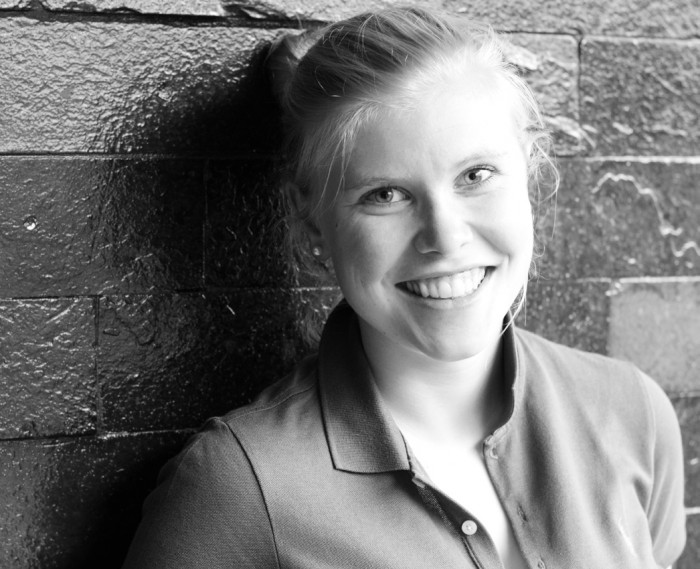
Ladies and gentlemen,
I feel really honored to be here today and speak about a project where i am really passionate about. It’s a pity for those who are in the general assembly now because I think you already heard some really inspiring speeches. I also participated in the experiments here just outside Medellin and four years ago in Bujumbura. This makes me together with Julie, Sebastian and Fabio experts in this field, if we can say so. Today, I won’t be talking about my personal experience here nor in Burundi. Today, I am standing here as a representative of the Youth Wing.
I’d like to talk to you about 4 different topics. First, who are we? Second, what are the experiments and what do we expect in four years. Thirdly I will briefly say something about WUJA and I’ll end this speech with some hands-on to do’s.
Who are we?
As some of you might know, the Youth Wing was established at the Bujumbura congress in 2009. We were there with more or less 15 participants and a dozen of young Burundese alumni. We as young are invited to the WUJA meetings but we don’t have voting right. This is something we’d like to achieve in the coming few years. Julies name and mine are in the booklets as youth representative. But actually all of us are youth representatives. Because it is really important that every young can give his or her input. As we don’t have the financial means to go to every WUJA meeting of congress, we rotate and communicate with each other about has being said. You might say it is an open delegate position that we have at WUJA. The rule says that young goes to 30. But as I look around this auditorium and see plenty of people who already passed that age but are still young, I think this rule is quite flexible. So if you are willing to help us, we’d love to!
And don’t forget that we can play an important role in your local association because we recently graduated from high school or university, we still have a strong bond with the school and know the current dean of president. Use our knowledge to get back in touch with the school in case you the bonds might have weakened of the years.
Experiments
Now I’d like to say something about the experiments. You already heard three lovely testimonies and I really hope you get the image what experiments really are. You can sometimes compare it to a Magis program, before the World Youth Days for instance. The participants were quite disappointed that these experiments are only organized every four years before a world congress. In Europe we took the initiative to host experiments before our European Conference. I’d like to encourage you to do the same thing. Be it before a continental conference or a national congress or even on the level of your own association. Just do it! Because we as you can learn so much from it. We learn social responsibility and serving others. Two things that you might have less prioritized or even forgotten after you left the ignatian educating system. If you get together with a group a young and just listen to the community, you’ll get to know what they really need. And that the right way to help in development. If you know their needs, you can continue serving this community. Or by continuing the experiments by sending people there every year or by giving sustainable aid adjusted to the needs of that local community.
The next world congress will most probably be in the United States. We’d be thrilled to have our third world edition of experiments there. We already have a document that can serve as a guideline for the organizing committee. This needs some fine-tuning after our experience here in Medellin. But we are really willing to help the States organize some unforgettable experiments. A proposal that came up during the Youth Wing meeting yesterday, is the explore the possibility to cooperate with Jesuit Refugee Service. But I think there are plenty of places where our help in serving other is more than welcome. Our goal here in Colombia was to have 20 people from over the world and 20 Colombians. The presence of local people is necessary not only for translation but also to be able to talk about who they feel about their country. There were 15 Colombians, which is good. But I was quite disappointed to see only 7 young from abroad (including me). Our goal is still to get at least 20 young (non USA) in 2017. Here in Medellin there are 25 countries represented. This means if everyone would send only one delegate – and come on, how hard is that? – we would already be 25 participants! And the more countries are represented, the nicer the experience. Because than you can have a double exchange. First of all the one with the local community and secondly the one in between the participants.
WUJA
In the third part of this speech, I’d like to say something about WUJA and it’s way of communication. That it can be better sure. We can always do better! But what about you? Have you made the effort to spread the word and distribute the news via your local newsletters? If you did, wonderful! If not, time to change that! Wuja.org is the new website and has really good features to build the Jesuit network as Chris Lowney mentioned. You all have a smartphone, don’t you? Well go to the website and fill out your personal details so we can develop that database we have all been dreaming about. And don’t forget to follow WUJA on facebook (wuja.official) and keep posted on what happens throughout the world.
To do
To end this speech by the young and also basically this congress, I’d like to give you some take home messages or maybe even to do’s. Go to WUJA.org and register. Go to facebook and like the WUJA page. Go back to your country and spread the word about the experiments. We’ll put some testimonies online so you can easily share it with your association.
It is really important to invest in your young on a local level, because one day we all get old. And you might get older a little sooner than we do, so we’ll have to take over one day. So don’t lose the young people out of sight, because you need them.
But most of all, come back in four years and make sure that there is at least one young participant from every country represented. Because we as Youth Wing want to have as many giraffe hearts as possible. Because that kind of heart can have an influence in a community, maybe even change it and make the world a better place. And isn’t that what we really want?
